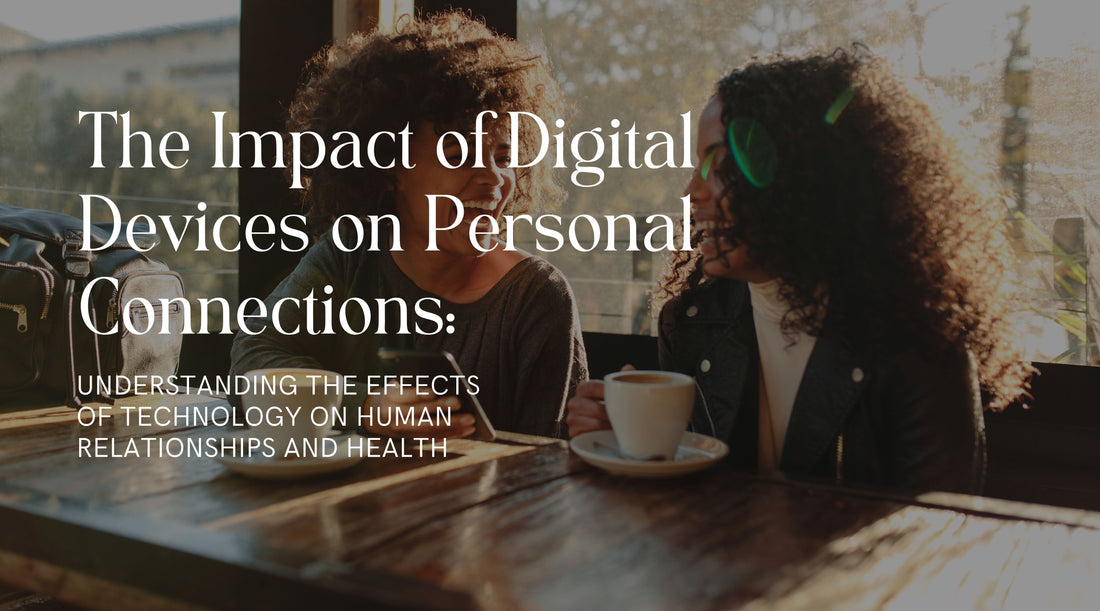
The Impact of Digital Devices on Personal Connections
Share
In the fast-paced, tech-driven world, like-minded people can send a message or reach out from across the world. Yet despite this ease, many of us feel incredibly isolated and disconnected from those around us. Today, we will uncover the importance of personal relationships, the negative impact that excessive tech use has on these vital human bonds, and how we can strike the ideal balance.
The Intricate Human Need for Connection
Humans are social creatures. Our evolution from early hunter-gatherer societies to sophisticated urban dwellers involved maintaining large, intricate networks of relationships. Being connected helps us survive not in the literal sense like it did for the early sapiens, but it gives our lives meaning. Social interactions help us celebrate life's joys, bolster us through difficult times, and are integral to improving mental and physical health. The scientific community has uncovered astonishing links between the quality and quantity of a person's social relationships and their health and lifespan.
Striking With The Double-Edged Sword of Technology
While communication technology has brought us uncountable benefits, it's important to also note the negative impacts. The constant pinging notifications and a vast array of digital distractions can edge into our real-world interactions. These digital substitutions for real human connection introduce us to potential EMF exposure from excessive screen use and cause a variety of physical health concerns.
Navigating the Turbulence: Effect of Screen Dependency on Relationships
Excessive screen time and mistaken multitasking can lead to rips in the fabric of our relationships. Messages constantly vie for our attention, pulling us away from personal interactions. This digital invasion can lead to feeling undervalued in relationships, constant stress levels, and potential long-term health implications.
A key concern is the juggernaut of social construction on digital platforms. Our self-worth is too often measured in likes, shares, and comment counts, shattering the authenticity of our social lives. The over dependence on and comfort in digitally-mediated interactions reduce the ability to engage in face-to-face conversations, causing social skills to atrophy over time.
On emotionally charged topics, empathy – a human connection's corner-stone – often gets diluted behind the veil of screens. In such instances, digital disruption usually translates to insensitivity, risking the collapse of relationship satisfaction. Added to that, screens are two-dimensional, lacking the linguistic depth, the warmth of tone, and often blurring out emotional nuances critical to healthy relationships.
5 steps to Establish Healthy Technological Boundaries
- Fixed screen-free hours: This could be during meal times, an hour before bedtime, or every time you’re out for a walk. Prioritise real-world experiences during these breaks.
- Technology-free zones: Implement areas in your home where devices do not intrude, like the dining room or the bedroom.
- Conscious usage: Try to notice when your device usage is out of habit rather than necessity. Encourage yourself to put the device away during these times.
- Interest-driven activities: Learn new skills or adopt hobbies that encourage in-person interaction – like joining a book club, or learning pottery.
- Digital detox: Implement a regular detox regime – a day every week, or a week every couple of months where you disconnect from your digital world to rejuvenate.
Conclusion
The balancing act that must be performed is not as much the issue of technology itself but regulating how and when we dispense our attention to digital devices. Establishing these boundaries and regaining balance won't be an overnight occurrence. Maintaining our primordial penchant for strong human bonds should stand as our final destination in the face of emergencies, digital or otherwise. And as we tweak our digital habits, it's crucial to remember that the most mesmerising parts of life and relationships usually happen in the silent pauses between chat pings.
